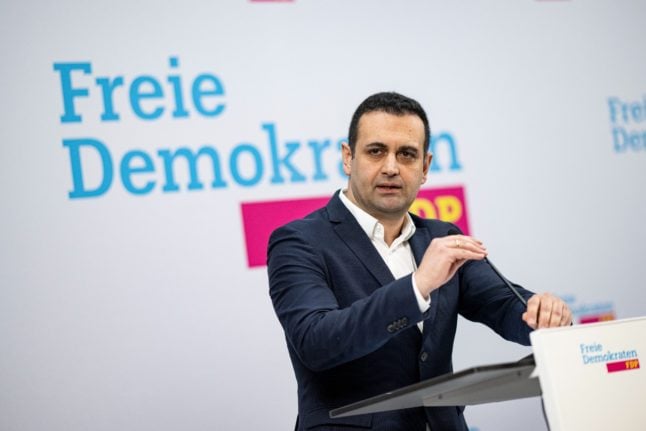“We as the FDP want to establish English as a second administrative language in Germany,” FDP Secretary General Bijan Djir-Sarai told the newspapers of the Bavarian media group.
“Those who speak English must not be allowed to struggle when dealing with German authorities.”
The liberal party, who govern alongside the centre-left Social Democrats (SPD) and Greens in the traffic-light coalition, have long been advocates of compulsory English for public authorities.
Currently, German is the only official administrative language at places like the Bürgeramt or Foreigners’ Office, meaning speakers of other languages often have to hope for the best or bring along an interpreter.
READ ALSO: IN DEPTH: Are Germany’s immigration offices making international residents feel unwelcome?
But Djir-Sarai said Germany’s shortage of skilled workers meant the country needed to make allowances for people who weren’t native speakers of German.
“We are currently in a global competition for the brightest minds and the most industrious hands,” he said.
In this context, he said, Germany must go one step further.
“Companies are expected to be open to English-speaking applicants, so you should also expect our authorities and administrations to be able to offer these people a complete service in English,” Djir-Sarai added.
Ten-point plan
Back in 2022, the FDP called for the introduction of English as an additional administrative language as part of a ten-point programme to facilitate the immigration of skilled workers.
At the time, however, Federal Education Minister Bettina Stark-Watzinger (FDP) conceded that the bilingual public authorities could not be implemented immediately.
But with new forecasts emerging that highlight the scale of Germany’s skills gap, the FDP is renewing its demand for English speakers to work for public authorities.
READ ALSO: ‘Appointments in English’: How Germany wants to attract talent from abroad
The federal government expects that Germany will face a shortage of around 240,000 skilled workers by 2026 – though some forecasts are much more severe.
Recently, the Institute for Employment Research (IAB) predicted a shortage of more than seven million workers by 2035.



 Please whitelist us to continue reading.
Please whitelist us to continue reading.
Member comments